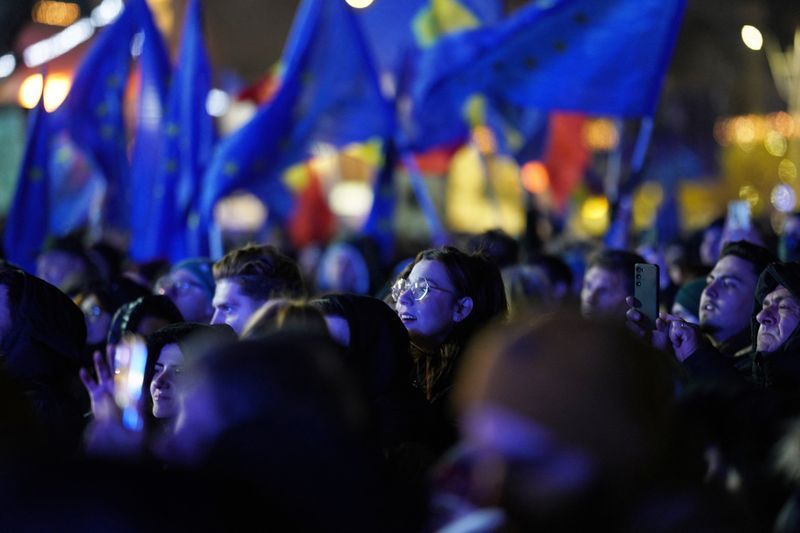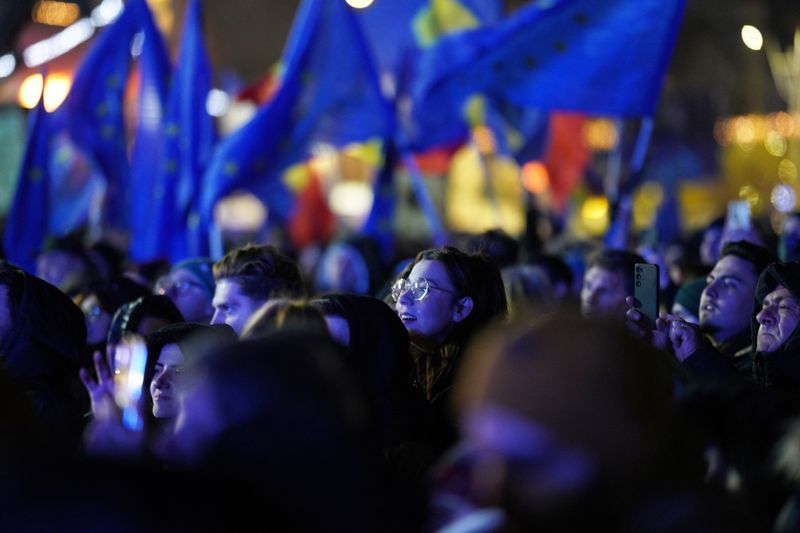
BUCHAREST (Reuters) – Romania’s pro-European parties reached a firm commitment late on Monday to form a governing majority that cordons off the hard right and potentially endorses a single candidate for a re-run of the country’s annulled presidential election.
The ruling leftist Social Democrats won the most seats in a Dec. 1 parliamentary election which also saw three ultranationalist and hard-right groupings, some with overt pro-Russian sympathies, win over a third of seats.
The parliamentary ballot was sandwiched in between two rounds of a presidential election which saw far-right NATO-critic Calin Georgescu emerge from relative obscurity to become the shock frontrunner.
That prompted accusations of Russian meddling before the country’s top court annulled the presidential vote on Friday and said the entire process will need to be re-run.
The new government in the European Union and NATO state will need to come up with a new calendar for the presidential election, likely in the first part of 2025.
Outgoing President Klaus Iohannis, who will stay on until a new president is sworn in, will nominate a prime minister. The current legislative’s term ends on Dec. 21.
On Monday, the Social Democrats, their current coalition partners the centre-right Liberals, opposition centrist Save Romania Union and the ethnic Hungarian party agreed to quickly form a pro-European government.
“In the coming days, the four parties and representatives of national minorities will work on a common governing program based on development and reforms which will consider the priorities of Romanian citizens,” a joint statement said.
Analysts expect the four parties, which have often clashed on policy issues, will struggle to agree measures needed to lower the EU’s largest budget deficit at 8% of economic output.
Analysts, ratings agencies and Brussels have said tax hikes are needed, which will further erode the parties’ support.
The parties also said they were considering supporting a single pro-European candidate in the presidential election, to boost their chances of winning against a wave of support for ultranationalists.
It was unclear whether Georgescu would be allowed to run again, with prosecutors investigating his campaign.

